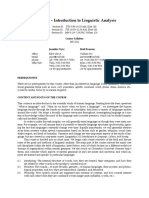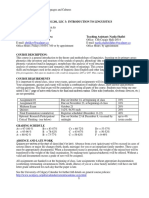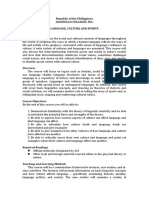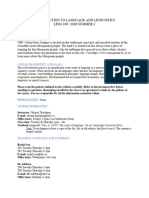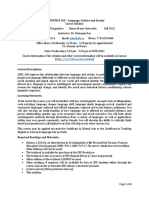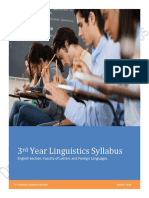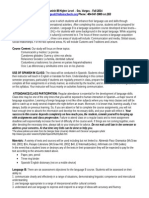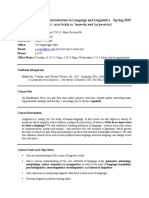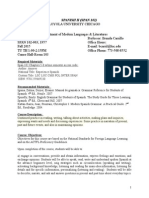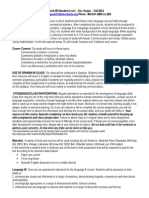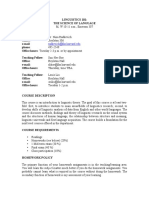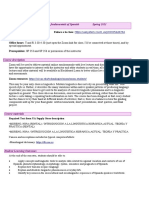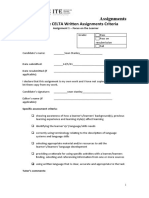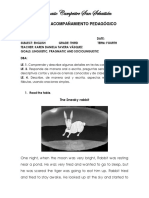0% found this document useful (0 votes)
41 views6 pages200 Syllabus
This document is the syllabus for Linguistics/Anthropology 200 at Rice University, detailing course objectives, meeting times, grading policies, and required materials. The course covers various aspects of linguistics, including conversation analysis, phonetics, syntax, and language variation, with assessments including quizzes, midterms, and a final exam. Additional information includes instructor and TA contact details, attendance policies, and resources for students with disabilities and mental health support.
Uploaded by
stanichernovCopyright
© © All Rights Reserved
We take content rights seriously. If you suspect this is your content, claim it here.
Available Formats
Download as PDF, TXT or read online on Scribd
0% found this document useful (0 votes)
41 views6 pages200 Syllabus
This document is the syllabus for Linguistics/Anthropology 200 at Rice University, detailing course objectives, meeting times, grading policies, and required materials. The course covers various aspects of linguistics, including conversation analysis, phonetics, syntax, and language variation, with assessments including quizzes, midterms, and a final exam. Additional information includes instructor and TA contact details, attendance policies, and resources for students with disabilities and mental health support.
Uploaded by
stanichernovCopyright
© © All Rights Reserved
We take content rights seriously. If you suspect this is your content, claim it here.
Available Formats
Download as PDF, TXT or read online on Scribd
/ 6
